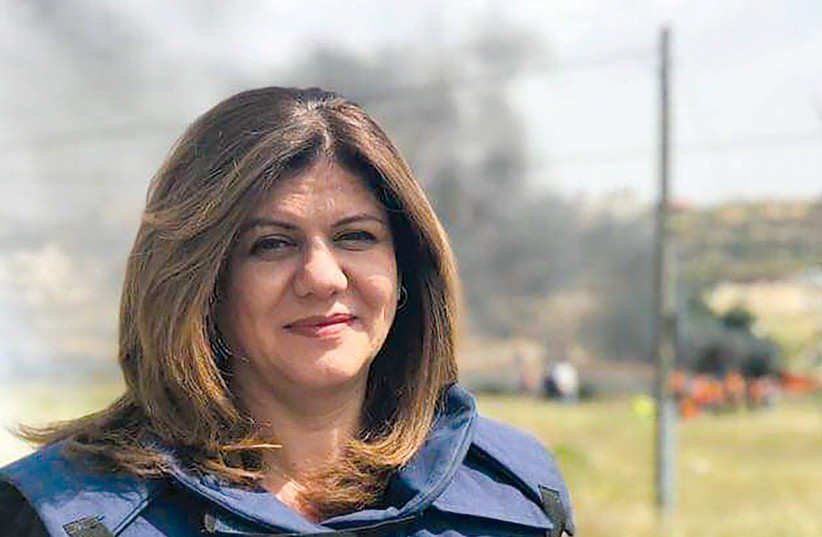An investigation by the IDF into the death of Shireen Abu Akleh, whose results were released this week, concluded that “there is a high possibility that Shireen was accidentally hit by IDF gunfire that was fired toward suspects identified as armed Palestinian gunmen, during an exchange of fire in which life-risking, widespread and indiscriminate shots were fired toward IDF soldiers.”
This is an important finding and concludes an important investigation into the killing of the Palestinian-American journalist for Al Jazeera. Unlike other countries that might have tried to cover up these findings, Israel did not. It investigated itself and then released the results to the world, despite knowing that it would have negative fallout.
That being said, this incident still leaves unanswered questions, and we hope the IDF, and Israel in general, can learn from the tragedy and improve the way it carries out these operations in the future.

How will Israel learn from the Shireen Abu Akleh incident?
This includes learning from the incident to see how journalists can be better protected during military operations. Journalists are always going to find themselves in the line of fire when Israel is forced to battle terrorists in urban areas. However, the IDF must always weigh the presence of these civilians with the operational necessity of the missions. In general, Israel has vastly improved its ability to prevent unnecessary civilian casualties, and that needs to apply always.
The defense establishment should be applauded for conducting an investigation into this death and determining more of the facts than were known initially. The US has noted that Israel’s investigation “underscores the importance of accountability in this case, such as policies and procedures to prevent similar incidents from occurring in the future.”
Israel and the US are close partners and allies, and this incident illustrates not only cooperation between the two countries but also how they can share assessments and learn to mitigate the chances for further incidents like this – a point the US also noted in its statement.
Some will always castigate Israel. The Committee to Protect Journalists slammed Israel for not revealing the name of the “killer.” However, Israel’s response is in line with that of other democracies that have all faced the complexity of battling terrorist enemies who embed themselves among the civilian population.
Israel did not choose to fight in the complex battlefields of places like Jenin. It is groups like Islamic Jihad that purposely operate from these areas, hiding in apartments and in alleyways and engaging the IDF from civilian areas. These terrorist groups violate the basic laws of armed conflict by conducting their operations among civilians and endangering the civilians and journalists who cover these incidents.
The enemy conducts itself in a method that is contrary to human-rights norms, but that does not reduce Israel’s need to safeguard the rights and lives of civilians who find themselves in harm’s way. We care deeply for our journalist colleagues who cover this conflict; they are peers and friends. It is essential that journalists always be protected and that militaries and terrorist groups refrain from harming them.
Israel has learned from its past mistakes and will learn from this incident. We hope the IDF has already learned from the raid on Jenin to improve procedures and protocols.
For instance, the new technology that the military is absorbing as part of Momentum, especially the increased work with digitization and artificial intelligence, should help pinpoint journalists and civilian areas so that defense forces can be careful in the future and direct their fire in the most efficient, precise and safe way toward threats. In addition, the way the IDF operates in Gaza, by calling civilians to warn them to evacuate targets, is a tactic that can be drawn on when operating in other places, such as the West Bank.
The use of technology and briefing soldiers on what is expected in complex urban battlefields will help us reduce the chances of more incidents like the death of Abu Akleh.
